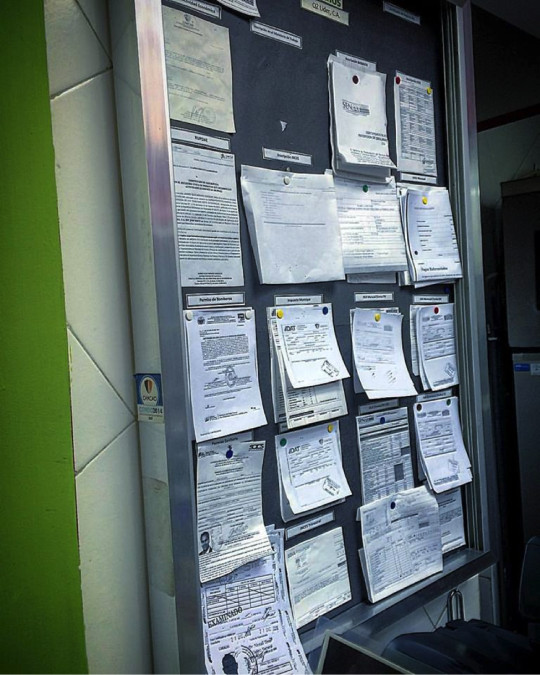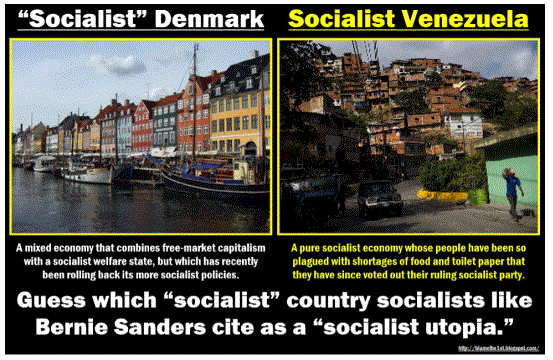“Socialism,” says Oleg Atbashian, “conserves the stage in which the society existed at the time it was overtaken.
“Cubans still drive American cars from the 1950s, North Koreans still dress in the fashions of the same bygone era, and in the USSR I grew up in a government-owned house that was taken from the rich and given to the needy in 1920s and remained without indoor plumbing or running water and with ancient electrical wiring until it was condemned and demolished in 1986.”
Moreover, if too many people are “helped” too soon, a centrally planned economy (i.e. socialism) can have the chilling effect of sending civilization into complete chaos.
Hugo Chavez, for example, after being elected to power in Venezuela in 1998, spearheaded his ‘Socialism of the 21st Century’ project, stating that “capitalism leads us straight to hell.”
This initiative entailed, among other things, unsustainable social programs, price and exchange controls, and sweeping nationalizations.
The result? Well, due to malinvestment, a common and virtually unavoidable problem of central planning, the government found itself too broke to provide basic public services — like protection from skyrocketing crime or basic health care. (But, hey, it’s free!)
In order to cover the costs, the regime printed more money, which triggered crushing inflation. When the prices started to inflate, the government then responded by imposing price controls, which caused massive shortages, making it impossible to find even basic necessities in stores.
 Toilet Paper Shortage: One Per Person Please
Toilet Paper Shortage: One Per Person Please
“What I have seen in the socialist country of Caracas, Venezuela,” Luke Rudkowski of WeAreChange wrote following his recent trip to the country, “has really rocked me to my core.
“The government spends their resources on gun-free zones, no smoking areas, permits for everything, making sure people can’t protect and arm themselves, social planning, price controls on basic necessities that make them nonexistent, bank controls so you can only take out $1 from an ATM, and you virtually have to wait in line for everything.
“Meanwhile,” he goes on, “the amazing, beautiful people of Venezuela are absolutely suffering not only in poverty but the worst fear and crime I have ever experienced in my life.
“These are just some of the government permits that one small restaurant business in Caracas has to publicly display,” Rudkowski says. “The owner told me there were more in the back.
 “Also, restaurants are having to change their prices every week”
“Also, restaurants are having to change their prices every week”
What Hyperinflation looks like
And, says Luke, “This is what hyperinflation looks like. This is about $150 U.S. dollars worth of Bolivares that you can trade on the black market.
“Walking around Caracas was difficult, even for basic necessities we had to give huge stacks of cash and also hand count the money every time. The fact that Caracas is the murder capital of the world did not make it easy to have that much cash on me at all time. You literally needed a book bag or shopping bag to hold it all.”
![]() Thank goodness for us, though, we have Bernie Sanders to school us all on how economics — and socialism — should really work.
Thank goodness for us, though, we have Bernie Sanders to school us all on how economics — and socialism — should really work.
Why, who can forget how Sanders solved the problem of national hunger by tackling Big Deodorant? “You don’t necessarily need a choice of 23 underarm spray deodorants,” Sanders said last year, “or of 18 different pairs of sneakers when children are hungry in this country. I don’t think the media appreciates the kind of stress that ordinary Americans are working on.”
“Other candidates,” Atbashian writes, “talk about going toe to toe with ‘Big Oil’ or ‘Big Pharmaceuticals,’ but only Bernie has the courage to take on Big Deodorant, and he’s not afraid to raise a stink about it!”
Yet, according to Ed Krayewski of Reason magazine, Bernie’s logic is a bit… hmm… flawed.
Sanders, of course, is mistaken on the fundamentals. Economic growth is not a goal for the sake of itself — economic growth ignited by the freeing of markets has lifted more people out of poverty in the last century than any other force in history.
Choices in the market contribute to the improvement of the human condition — not just because 23 choices of deodorant mean more jobs than one choice of deodorant but because in a very real sense more choices mean more wealth.
Bernie Sanders and those attracted to his economically illiterate, anti-capitalist rhetoric live in a world where working conditions haven’t changed since the 19th century, where the United States is perpetually one tax or spending cut away from collapsing into Mad Max style chaos.
Today, in light of this faux pas, for your viewing pleasure, we’re going to take a quick look at Oleg Atbashian’s book Shakedown Socialism.
Atbashian fled the USSR in 1994 in favor of the U.S., he writes, “hoping to forget about politics and enjoy life in a country that was ruled by reason and common sense, whose citizens were appreciative of constitutional rights, the rule of law, and the prosperity of free-market capitalism.”
Yet, soon after he arrived, he was shocked to find that the once-bastion of freedom was headed down the very same path that wrecked his homeland.
And since this prescient insight, he’s observed that this crazy train seems to only have one speed: faster.
You might also like:
This article originally appeared here and is reprinted under the Creative Commons license.



